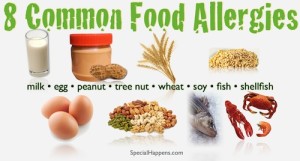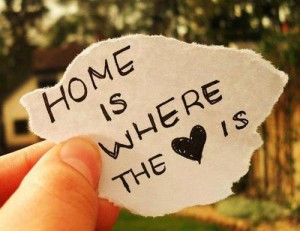While I’m allergic to a lot of things, like cat hair, pollen, and some medicine, I am fortunate enough to not to have allergies to any foods. But food allergies are very common, especially in the United States, and yet I found myself knowing basically nothing about them, except that if my roommate ever came in contact with tree nuts or sesame, I had to give her Benadryl and let her pass out in our dorm room, so I decided to do some research.
As defined by the National Institute of Allergy and Infectious Diseases of the U.S Department of Health and Human Services, “Food allergy is an abnormal response to food triggered by the body’s immune system”. It goes onto explain that you develop a food allergy after a second exposure/contact with the food because, after coming in contact with a food the first time, your body thinks that that food is harmful and produces an anti-body to combat the harm, which is why you get hives or your throat swells, so you don’t eat said food anymore. The food itself isn’t actually harmful to you, your body and your immune system just thinks that it is, and therefore tries to protect you against it.
The most severe form of an allergic reaction is called anaphylaxis, and can lead to death if not treated. The symptoms go far beyond just hives and swelling that occur in most other allergic reactions, including difficulty breath and loss of blood circulation. And besides food allergies, there’s also food intolerance, similar and often confused with food allergies but has to do with the digestive system rather than the immune system, and oral allergy syndrome, which typically occurs when adults with a severe allergy to pollen eats various raw fruits or vegetables that have similar proteins to pollen.
After learning the basics of food allergies, I decided to dig deeper and find out how common they are and if there’s any research or studies being done to try and find a cure.
In 2012, studies found that nearly 1 in 20 children under the age of five and 1 in 25 adults have at least one food allergy, and in 2007 the U.S Center for Disease Control and Prevention found that the number of children in the US with food allergies had gone up 18% since 1997. But why have food allergy rates gone up, and why does it only seem to be in Western Countries?
One theory is that children who grow up in Western societies don’t grow up with enough exposure to bacterias- that is, Western households are “too clean”. A study done in Florence, Italy compared bacteria found in the guts of 15 children from Florence, and 14 children from a rural African Village, and found staggering differences, relating to the children’s diets. While children born in Westernized nations are better protected from infectious diseases, children in places like African villages don’t suffer from food allergies. However, moving to an African village isn’t exactly a cure from food allergies and would probably end up causing more harm than good. So is there anything you can do to prevent your child from suffering from food allergies?
According to a recent study done in England, immunotherapy could help. Immunotherapy involves shots similar to those given to people with pollen allergies, beginning with a small exposure that gradually increases to create resistance. The study was a random controlled crossover trial, and they tested kids ages 7-16. They found that 91% of the kids, who couldn’t even be near peanuts before the therapy, could safely ingest five peanuts a day. However, the study concluded with a warning to not try this on your own; they didn’t know how long the immunotherapy lasted, and further treatment and studies needed to be done before it was used.
Another study found that children whose mothers consumed the highest amount of peanuts and/or tree nuts had the lowest rate of developing food allergies. It was a prospective cohort study, that looked at 8,205 children, 308 with food allergies of any kind and 140 with peanut/tree nut allergies.
There’s still no cure or significant therapy or treatment available for the seemingly always growing food allergy population, and no exact explanation for why it’s always growing, but there are many resources available to those who have a food allergy or intolerance so they’re always safe and protected.











